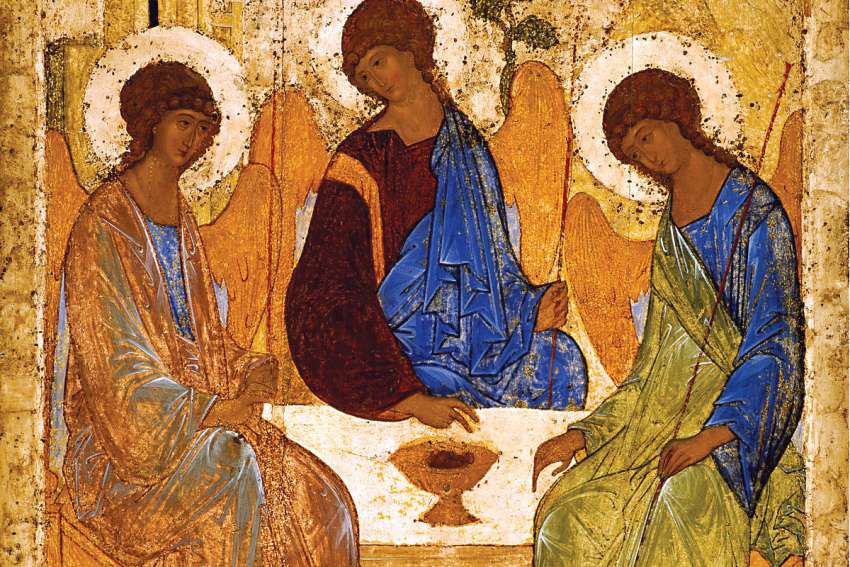The common understanding of truth is that it is presented in a true statement, a declarative sentence corresponding to reality. But here, Jesus presents truth as a relationship. One is called to belong to the truth. Truth is more than a proposition that accurately describes natural or spiritual reality. One can belong to the truth; indeed, one must belong to the truth.
At the Last Supper, Jesus spoke of the coming of the Holy Spirit this way: “When the Spirit of truth comes, he will guide you into all the truth.” (16:13) Again, truth is more than a proposition. It is something into which one can be guided. We can dwell in truth, but it takes the Holy Spirit to lead us into this dwelling place. St. Paul states that only spiritual people can discern God’s truth and his gifts. Those who are unspiritual perceive God’s gifts as foolishness. (1 Cor 2.10-15)
So, there is a kingdom of truth where some dwell and others lie outside. Pilate, the violent dictator, placed himself outside this kingdom when he scoffed, “What is truth?”
What is this kingdom? Theologian Hans Urs von Balthasar rejects any notion that worldly truths are disconnected from divine truth. The divine permeates even scientific truths. Every entity has an element of mystery in its make-up despite all efforts of the modern technological mentality to conquer it, he wrote in his book, Truth of the World: “Everyday realities are really the manifestations of unfathomable mysteries.”
Even our involvement in ordinary life is a pathway to the divine. Knowing an object means participating in something infinitely greater than the object itself. Every being, all truth, is God’s sign language of his presence and care.
This does not mean rejecting the natural sciences. Empirical knowledge of the world is true knowledge. But that knowledge participates in something deeper, the life of the Creator. In that light, the truth about the natural world is more than a theory.It is the truth we receive. Already we are in touch with unfathomable mysteries.
At the same time, our knowledge is an act of love. We cannot know everything, so those things or topics we choose to focus on reflect our desire for intimacy with them. This yearning displays our love. Further, our search for truth is an act of service to God.
All of this is an introduction to the knowledge of God. Such knowledge is possible only because Christ’s words and deeds reveal God to humanity. What Jesus reveals is the Trinity of love. The diversity in the Godhead implies a divine dynamism that static concepts such as God’s unchangeability cannot capture. God is an unfathomable mystery; he totally outstrips all human knowing precisely because he is infinite love. This love is displayed among the persons of the Godhead and the unsurpassable love for all he has created.
Here is the centre of the kingdom of truth. The one God is three persons in which the Spirit proceeds from the love of the Father and Son. That love is fruitful. God is not uncaring, distant and unreachable, but rather the One who gives himself totally in love. The Spirit expresses God’s innermost being as love and God’s outermost being – the possibility of God going outside himself in love.
This may sound like abstract theorizing, but it contains our own call to enter the kingdom. The kingdom of truth is the kingdom of love. Our vocation is one of total self-giving to God and other people. Nothing could be more practical. Jesus’ death on the Cross reveals just how practical the life of the Trinity is for us. Another statement of Jesus at the Last Supper shows the depths to which this can go: “No one has greater love than this, to lay down one’s life for one’s friends.” (Jn 15:13)
Few are called to love as deeply as Jesus did in living out those words. But that is the reality of the kingdom of truth: Nothing matters more than love.


